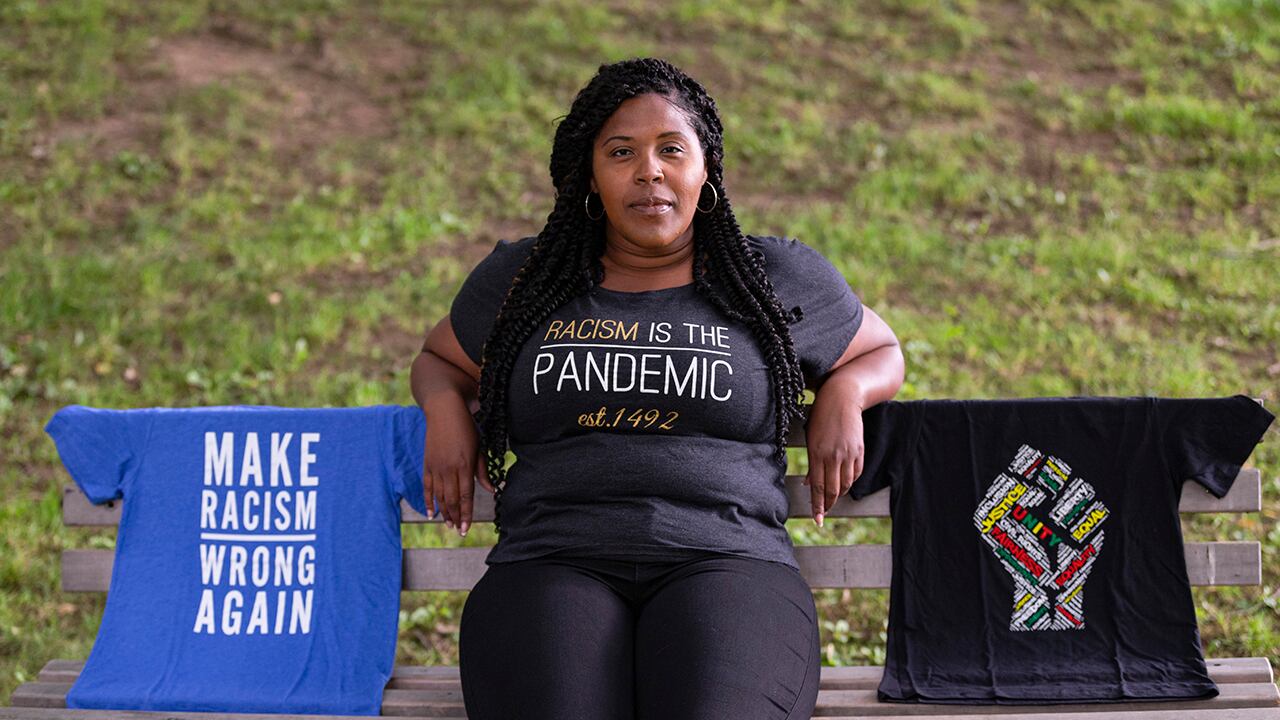On Dec. 7, all five members of Portland City Council released a joint statement condemning hate mail and death threats against Black activists. "They received the threats because of their work towards a more equitable city and because they are Black," the statement read. "The threats are abhorrent and disgusting and stand against our values."
For some Portlanders, the statement might seem baffling. What's it responding to? But for people at the forefront of the Black Lives Matter movement, the words felt long overdue. Here's the background.
Who received the threats?
Kamelah Adams, the owner of Portland apparel company Mimi's Fresh Tees, says she has received a total of four hate letters this year: two in July and two in November.
The most recent one, which she reported Dec. 3, included six names on a "kill list." All the names were of progressive Black leaders who received media coverage during this summer's racial justice protests.
Candace Avalos is a student adviser at Portland State University who ran for City Council in May and now chairs the city's Citizen Review Committee. Avalos says she found hate mail in her mailbox twice in November. The second letter, received within a week of the first, contained a kill list of 20 names, including the six on the list Adams received.
Activist and community organizer Cameron Whitten, who is Black, says a letter without names was addressed to him back in October in an envelope that contained a powdery substance. He says it was intercepted by the FBI before it could reach his home.
How and in what form did they receive them?
Both Adams and Avalos say they found the letters in their mailboxes. Adams tells WW all the letters have similar handwriting. "It's very traumatizing," she says. "I should not have a reaction to checking my mailbox. That's not a way to live."
What do the recipients have in common?
Each person on the six-name kill list is Black, and all have been leaders in the Black Lives Matter protests.
"I don't think we all have the same message," Avalos says. "We are all addressing the same issues affecting our community. The goal of the person who is harassing us is to point out that Black people have a voice and have something to say about our Black communities."
Who's investigating?
The Portland Police Bureau says it is investigating. Police began looking into Kamelah's case in July and then reached out to other letter recipients to open another investigation on the more recent letters in November, a few days after they were reported.
"Portland police have taken reports from individuals who received threatening letters. Investigators do not have new information to release," Lt. Greg Pashley, a bureau spokesman, tells WW in an email.
Mayor Ted Wheeler issued public statements on Twitter a few days after the letters were posted on social media in July and December. He pledged to assist Portlanders who had been targeted by hate mail. Last month, he received intense criticism for not contacting a majority of people on the lists. In a text message exchange with activist Jake Dockter on Nov. 23, Mayor Wheeler wrote, "I didn't mean to give the impression that I am personally going to call 100 people on the list."
What do the letter recipients want City Hall to do?
Adams says she wants officials to recognize the trauma caused by the letters and how it impacts victims' loved ones. Her family and children are in counseling to process the trauma these letters have inflicted.
"I need City Council to denounce racism and take this matter very seriously," Adams says. "We can't just ignore this. I need City Council to focus on the trauma and how this impacts our lives. We need transparency and we need updates."
Avalos had called for a joint statement several days before the council issued one. She says officials should "give plans on how to help and protect the Black community from harassment."
Whitten wants stronger protections against doxxing—the posting of private information online to harass and harm."We need to have another emergency town hall for our BLM activists so they can have a space to hear from hate crime experts," Whitten says.
Avalos says it's difficult for her to imagine City Hall addressing the problem—since the Police Bureau has repeatedly used force on the activists whose harassment officials have condemned.
"How can they keep us safe? That is the ultimate question we've been asking," Avalos says. "I want them to be transparent about these questions and come up with real solutions."
*This article was corrected to change Candace Avalos' role to chair of citizen review committee. WW regrets the error.
